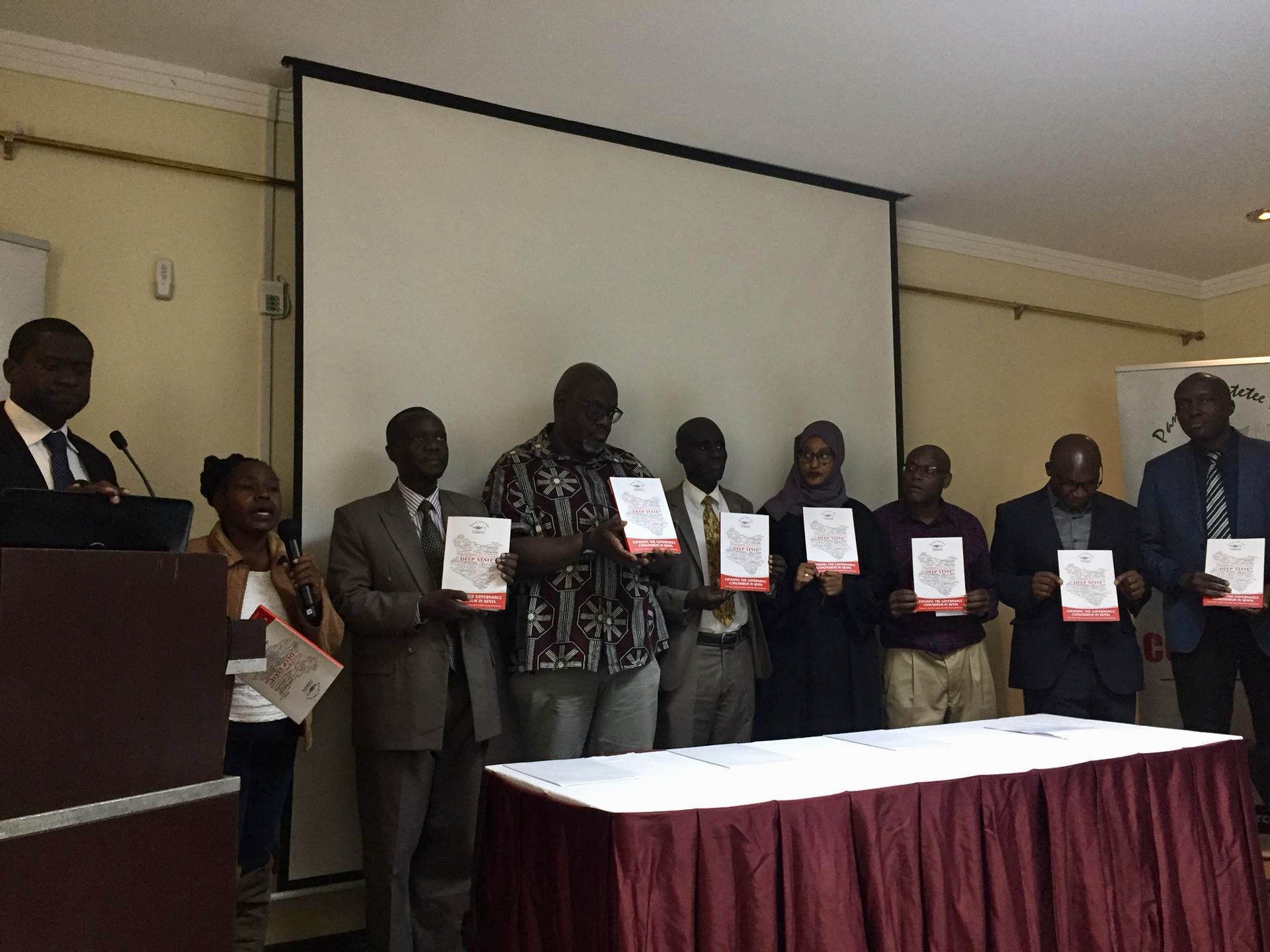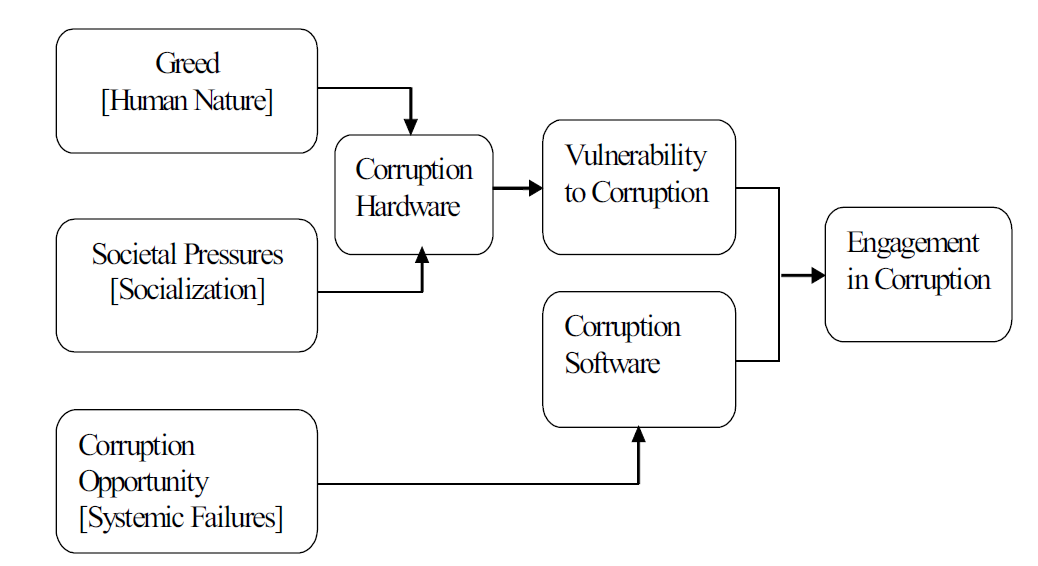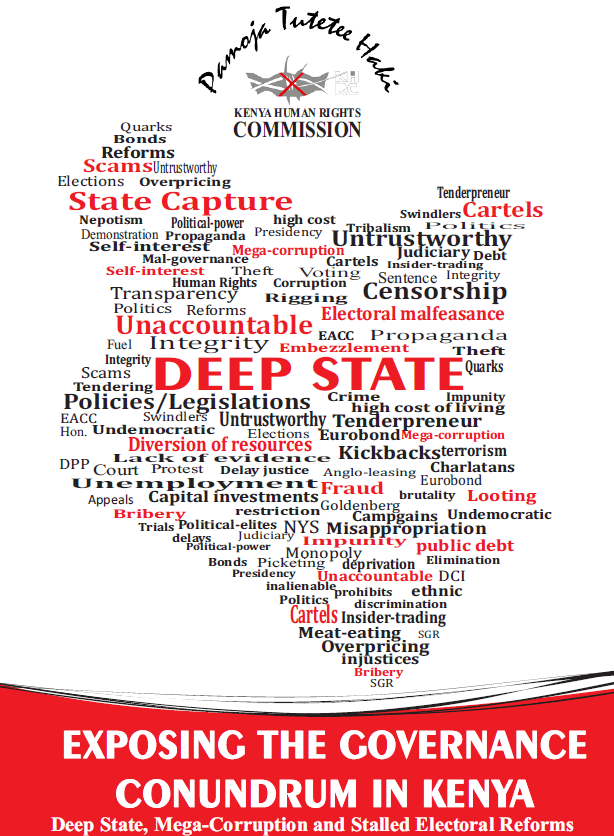 ISLP Legal Fellow, Emma De Koster, attended the report launch organized by the Kenya Human Rights Commission. The report, by Dr. Patrick O. Asingo (Political Scientist, Senior Lecture University Nairobi, analyzes the connection between deep state, mega-corruption and stalled electoral reforms in Kenya. The report seeks to understand the motivations for corruption and the political environment that has allowed corruption to permeate across various facets of society.
ISLP Legal Fellow, Emma De Koster, attended the report launch organized by the Kenya Human Rights Commission. The report, by Dr. Patrick O. Asingo (Political Scientist, Senior Lecture University Nairobi, analyzes the connection between deep state, mega-corruption and stalled electoral reforms in Kenya. The report seeks to understand the motivations for corruption and the political environment that has allowed corruption to permeate across various facets of society.
Corruption is not exclusive to Kenya, rather it is an issue that many emerging governments face. Kenya’s case however, is particularly puzzling. Despite multiple attempts of institutional reform, corruption has persisted and has worsened. Dr. Asingo links the exacerbation of this issue to the concept of the deep state in which every action within this schema further stimulates the machine of corruption. Deep state refers to “authoritarian, criminal and corrupt segments of the state that function in a democratic regime by exploiting and reproducing its deficiencies.” In other words, it is a system of informal institutions operating in the shadows of formal governance institutions. The actors in this informal system include, for example, politicians, private businessmen and corruption cartels that use political power and political influence for access to resources and corruption opportunities.
Dr. Asingo attributes their behavior and actions on the rational choice theory that suggests actors are “rational, self-interest-driven and utility maximizers, whose decisions are motivated by cost-benefit calculations.” Rarely do these actors invest resources and effort on activities whose costs outweigh the possible benefits to be collected when there are other activities that promise greater benefits relative to the cost.
Using the rational choice theory, Dr. Asingo conceptualizes a framework (Figure 1) to understand the underlying behavioral, institutional, and socio-cultural motivations for corruption in Kenya.
Rational choice theory also helps understand the connection between the deep state, corruption, and failed electoral reforms in the country. Dr. Asingo hypothesizes that the constant failure of electoral reforms is a response to persistent corruption that can be traced back to the deep state. He emphasizes that “at the heart of deep states lie the pro-status quo corruption networks and cartels which are products, beneficiaries and critical cogs in the wheels of corruption.” These networks suppress anti-corruption actors and institutions and interfere with institutional changes, in particular electoral reforms that would thwart their interests. This system of corruption poses a great threat to Kenya’s democracy. It creates greater potential of having a government formed by and of benefit to corruption cartels, rather than a government built by and of service to its citizens. In this scenario, the corruption cartels decide the leaders, which policies are worth pursuing, and what public projects should be executed.
Figure 2 is Dr. Asingo’s conceptual framework of the deep state, corruption and elections in Kenya.
Realizing the threat corruption poses to Kenya, Dr. Asingo offers recommendations to combat this threatening machine:
- Make corruption more expensive and less attractive by reducing opportunities and increasing its cost;
- Vetting of candidates for appointments to key democratic institutions should be done more thoroughly;
- Witness Protection Act should be reviewed and witness protection agency strengthened to protect witnesses and whistleblowers;
- More stringent wealth and asset declaration measures;
- Strong advocacy to review ACECA;
- Instant deregistration of private businesses convicted of corruption-related crimes;
- Development of comprehensive handbook or set of sectoral handbooks on various services provided by the government.



